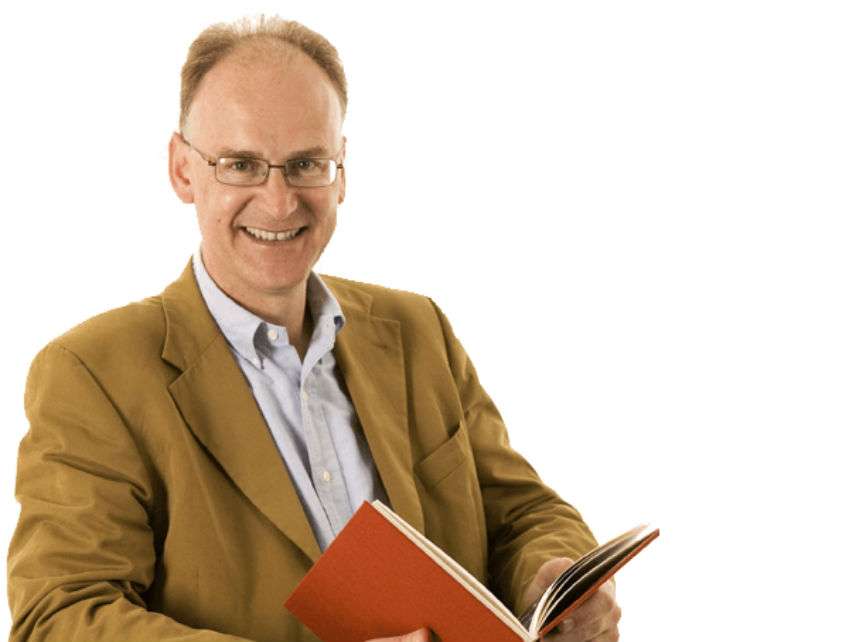Matt Ridley's 'Case for Free-Market Anticapitalism'
Ridley argues that the champions of markets need to recapture their radicalism.

Many Reason readers have surely had the experience of trying to explain that libertarians are pro-market, not pro-corporation. This plain truth often elicits a puzzled look, doesn't it? You go on to explain that open markets are networks of voluntary cooperation that enable people to produce and sell goods and services that create prosperity. In contradistinction, when functionaries or politicians describe themselves as pro-business, they all too often mean that they want to provide favors in the form of subsidies and regulations that benefit specific corporations at the expense of consumers and taxpayers.
Matt Ridley makes this vital distinction crystal clear in his 2017 Keith Joseph Memorial Lecture to the Centre for Policy Studies. The author most recently of The Evolution of Everything: How Ideas Emerge, Ridley titles his lecture "The case for free-market anticapitalism." Below are a few choice quotations:
I want to argue that the champions of markets and enterprise need to recapture their radicalism, to reassert the right to be a disruptive, even subversive, not a reactionary, force in the world.
They need to distinguish between free markets serving consumers, on the one hand, and crony capitalism addicted to corporate welfare on the other, because it is the corporatism that people dislike, but it leads them to distrust free markets because they do not perceive the difference.
"Capitalism" and "markets" mean the same thing to most people. And that is very misleading. Commerce, enterprise and markets are—to me—the very opposite of corporatism and even of "capitalism", if by that word you mean capital-intensive organisations with monopolistic ambitions.
Markets and innovation are the creative-destructive forces that undermine, challenge and reshape corporations and public bureaucracies on behalf of consumers. So big business is just as much the enemy as big government, and big business in hock to big government is sometimes the worst of all….
The essence of free enterprise is that people become more prosperous by working for each other. The more they abandon self sufficiency for interdependence, the better off they are. The more they specialise as producers, the more they can diversify as consumers. And what this means of course is that networks of exchange and specialisation create cooperation, collaboration and community on an epic scale.
By collaborating through commerce we can do things that are far beyond the capacity of the human mind to comprehend. Human intelligence is a collective phenomenon, a distributed brain, a cloud. As Leonard Reed famously pointed out, among the thousands of people who contribute to making a simple pencil, not one of them knows how to make a pencil.
You can see where I am going here, can you not? That true communism, true collectivism, is created by the market, not the state. That the deepest cooperation is what we achieve by buying and selling. It's time we told the young this. They will never have heard it….
Critics of commerce focus on the role of competition between firms, but forget the cooperation between producer and consumer, and between co-workers.
I once gave a talk in Oxford and an academic approached me afterwards and said that he was troubled by what I had said, for was it not obvious that the most evil people in the twentieth century were all, without exception, capitalists? Surely I could see that. I looked at him, wondering if this was a trick question. Er, what about Stalin, I said? And Hitler? Mao? Pol Pot?
OK, apart from them, he said.
Is it not bizarre, after the 20th century, that people are so forgiving of the state and so mistrustful of the market?…
In some disciplines, the universities have become little better than madrassas for the promulgation of a Maoist cultural revolution. The Gramscian Long March through the institutions, on which the socialists embarked in the 1960s, has culminated in students voting en masse for a man who preaches a tired, old, reactionary and authoritarian creed.
Let's give them something more revolutionary, liberating and democratic. Let's offer them freedom.
Hear, hear! Ridley's entire lecture is well worth your time and attention.


Show Comments (91)